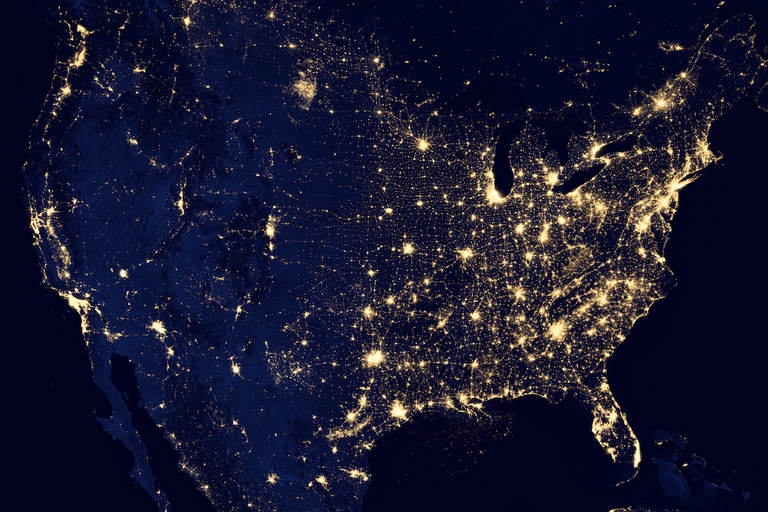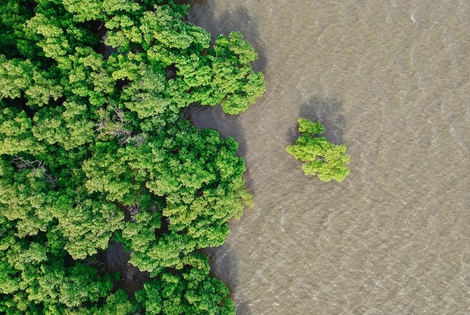
The Amazon became an alternative classroom during the pandemic. Now, the educational forest in Batraja, Bolivia, lives on to teach children and adults the value of nature.
Supporters and enthusiasts will March for Science on the streets of the United States capital Washington DC on the 22nd of April: the occasion is Earth Day, established by the United Nations to celebrate our planet and act against the threats that face it. The motive is to protest neo-president Donald Trump‘s retrograde stance towards climate change and the environment.
Supporters and enthusiasts will March for Science on the streets of the United States capital Washington DC on the 22nd of April: the occasion is Earth Day, established by the United Nations to celebrate our planet and act against the threats that face it. The motive is to protest neo-president Donald Trump‘s retrograde stance towards climate change and the environment. A popular mobilisation under the banner of the chant “Science not silence” to call out the current government’s denial of global warming, repealing of Obama’s Clean Power Act and, possibly, the country’s exit from the Paris Agreements signed at COP 21. And its undermining of scientific research that discredits its anti-environmental policies.
The seeds of the March for Science, which is being held in partnership with the Earth Day Network, were planted in the aftermath of Trump’s inauguration on the 20th of January. Just like the Women’s March on Washington – when up to a million people took to the streets of the US capital to demand that the president protect women and minority rights the day after his inauguration – the movement for science and against its silencing is rooted in online mobilisation. From a post on social news aggregator Reddit in response to the White House’s removal of the page on its website dedicated to climate change, it has grown rapidly on social media: “the first step of a global movement to defend the vital role science plays in our health, safety, economies, and governments”, its website says.
“The March for Science is a celebration of science. It’s not only about scientists and politicians; it is about the very real role that science plays in each of our lives and the need to respect and encourage research that gives us insight into the world”.
The March for Science will take place on April 22, 2017. We hope to see you in D.C. and around the world! #ScienceMarch pic.twitter.com/tXzvu8SsS3
— March for Science (@ScienceMarchDC) February 1, 2017
The Nature Conservancy, based in Arlington, in the US state of Virginia, is one of the most important environmental organisations in the world, working to protect ecologically important lands and waters since 1951 – and is a sponsoring partner of the March for Science. In fact, with a team of 600 scientists working all over the world it has been guided by science to achieve its mission to protect the natural resources on which all life depends since its inception.
Science provides the tools to overcome threats such as climate change, deforestation and overfishing, Hugh Possingham, chief scientist at The Nature Conservancy, believes. Tens of thousands of people are expected to participate in support of the March for Science all around the world: a critical mass demanding that their elected officials invest in scientific research “as the foundation of a strong, healthy and productive society”, Possingham reminds us in this article. “I and others across The Nature Conservancy will join those marchers to raise awareness of the central role science plays in conserving the natural systems we all rely upon for survival” because “around the world, governments, businesses and communities are using science to support jobs, feed families, power cities and protect nature. That’s why, to me, science means hope”.
For those who can’t participate in the march physically they can show their support online, for example signing The Nature Conservancy’s pledge to March for Science. Stand with Nature. To tell governments the world over that we the people firmly believe that knowledge and research can help us better our societies and protect our planet.
Siamo anche su WhatsApp. Segui il canale ufficiale LifeGate per restare aggiornata, aggiornato sulle ultime notizie e sulle nostre attività.
![]()
Quest'opera è distribuita con Licenza Creative Commons Attribuzione - Non commerciale - Non opere derivate 4.0 Internazionale.
The Amazon became an alternative classroom during the pandemic. Now, the educational forest in Batraja, Bolivia, lives on to teach children and adults the value of nature.
Our species took its first steps in a world covered in trees. Today, forests offer us sustenance, shelter, and clean the air that we breathe.
Bangladesh suffered widespread damage as a result of Cyclone Amphan. Yet the Sundarbans mangrove forest acted as a natural barrier protecting the country from further destruction, as it has done countless times before.
On top of a 2.4 million dollar compensation, the indigenous Ashaninka people will receive an official apology from the companies who deforested their lands in the 1980s.
The tapir was reintroduced into Brazil’s Atlantic Forest, the country’s most at-risk ecosystem. The species can play a key role in the forest’s recovery.
Forests are home to 80 per cent of the world’s terrestrial biodiversity. This year’s International Day of Forests highlights the urgent changes needed to save them.
After a legal battle that lasted two years, Indonesia’s Supreme Court has revoked the permit to mine for coal in the forests of South Kalimantan in Borneo.
The list of human and animal victims of the Australia wildfires keeps growing – one species might already have gone extinct – as the smoke even reaches South America.
Areas where the FARC guerrilla used to hold power in Colombia have faced record deforestation. Farmers cut down trees, burn land and plant grass for cows. Because, “what else can we do for a living here in the Colombian Amazon”? An intimate report from the heart of the felled forest in Caquetá.









